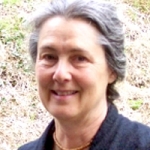 IBCLC Detailed Content Outline: Physiology and Endocrinology Focused CERPs - Section II
IBCLC Detailed Content Outline: Physiology and Endocrinology Focused CERPs - Section II
Access CERPs on Physiology and Endocrinology for the IBCLC Detailed Content Outline recertification requirements. Enjoy convenient on-demand viewing of the latest Physiology and Endocrinology focused IBCLC CERPs at your own pace.


Lia Bello is a Family Nurse Practitioner, educated at the University of Virginia, and is Certified in Classical Homeopathy. Lia is the founder of the Homeopathic Nurses Association www.nursehomeopaths.org and past president of the Council for Homeopathic Certification. As America’s foremost homeopathic nurse educator, Lia loves to open up the world of Homeopathy to mothers, nurses and other healthcare practitioners and teaches courses around the U.S. which award CE’s for nurses. Her website, www.learnhomeopathy.org, features video courses and many informative articles. Residing in Santa Fe, New Mexico, Lia has had a private practice specializing in holistic and homeopathic acute and chronic healthcare for over 43 years.
This presentation would start with a brief explanation of what homeopathy is, how it works and why it is safe for mother and infant (over the counter ). I will give info on remedy use for nausea of pregnancy, threatened miscarriage, insomnia, mal-positioning, emotional upsets/fear of giving birth/grief/post partum depression, physical trauma of giving birth, prevention of prolonged labor, natural induction, after-pains, mastitis, engorgement, jaundice, milk supply problems. I will include how remedies are dosed and administered for mother and infant.

What a Letdown: Exploring the Physiology of the Milk Ejection Reflex

Briana Tillman received her undergraduate degree in International Relations from the United States Military Academy at West Point. She has been a La Leche League Leader for 9 years and is a board certified lactation consultant. After spending 10 years as a stay-at-home mom, she is currently in her third year of medical school at Rocky Vista University College of Osteopathic Medicine in Parker, Colorado. She loves spending time with her husband and three kids—as a family they like to travel, go camping, and play string instruments in “family ensemble.”
Nick is a 3rd year medical student at Rocky Vista University College of Osteopathic Medicine. He has a background in mechanical and systems engineering but found his calling in medicine after volunteering for Health4Haiti in 2011. He lives in Colorado with his wife and they enjoy hiking, camping and fishing in the great outdoors.
Topic: What a Letdown: Exploring the Physiology of the Milk Ejection Reflex - [View Abstract]
New mothers experience the milk ejection reflex, or “letdown,” in various ways. While some feel no physical symptoms, others experience a tingling sensation and some even have significant pain or sadness. Babies also have different experiences, from the overactive “drink from the firehose” to frustratingly long waiting at feeding time. This presentation explores the multitude of influences on letdown, from internal hormones and chemical signaling pathways to the research related to such external influences as diet, alcohol, stress, and the use of synthetic oxytocin.
Many moms believe that they either do not produce sufficient milk or need a quicker, more effective letdown. Suggestions to deal with these issues range from drinking beer to adding different nutritional supplements to the diet, from hypnosis to oxytocin nasal spray. We will explore the research and unravel the best practices and recommendations we can give to clients related to their concerns about the milk ejection reflex.

View Details / Enroll

View Details / Enroll


Carol Smyth is an IBCLC and Cognitive Behavioural Psychotherapist working in both Primary Care and in private practice in Northern Ireland. With a background in psychology she is driven by a passion to promote attachment based and trauma informed care to families and babies. She is the author of the Why Infant Reflux Matters book, both an HCP education resource and a self-help book for families worried about their baby’s reflux and unsettled behaviours. When working with parents she aims to increase understanding of normal (often misunderstood) baby behaviours and to explain why these are often different from what we expect. This understanding helps to lower parental anxiety and promotes attachment strategies proven to reduce crying.
Topic: What Does Breastfeeding Mean for Fertility? - [View Abstract]
The impact of breastfeeding on fertility has been neglected by research in recent years. There can be significant variation in when the menstrual cycle returns for parents, which can impact their plans for family expansion. Some who conceived easily before breastfeeding, can find it much more difficult to conceive while breastfeeding. Some who struggle with recurrent miscarriage can wonder if breastfeeding is impacting their ability to carry to term. Many are left wondering whether to wean their nursling in order to conceive again, which can be a very difficult decision to make, when that conception is uncertain. This presentation will review the research on how breastfeeding affects the menstrual cycle, how fertility is initially suppressed and how it returns, the ongoing effect that breastfeeding can have on fertility, how to use breastfeeding as a contraceptive method (if desired), how to maximise chances of conception (if desired) and whether it may affect a pregnancy after conception has occurred.

Where Should We Dig? Not All Gold Is Buried Under the Tongue

Carol has been a therapeutic bodyworker in Portland, Oregon for over 26 years. She is a retired home birth midwife. She specializes in infant and maternal Craniosacral Therapy.
Carol is convinced that if women are appropriately supported in growing, birthing and nurturing their babies, their lives will improve. When women's lives improve their children's health improves. Healthy children grow up to be healthier adults who create healthier communities and a saner, more peaceful world. Carol believes that when things are out of balance even the smallest intervention can bring about great healing. Our need for it is so great.
Carol is passionate about using her CST skills to gently make space in maternal bodies so babies can assume ideal positions for gestation and birth. She is currently developing specialized prenatal yoga classes to support and enhance the maternal bodywork techniques she practices and teaches.
Topic: Where Should We Dig? Not All Gold Is Buried Under the Tongue - [View Abstract]
Carol will explain how the sources of tongue and oral dysfunction aren’t always in the mouth. Sometimes the gold is buried elsewhere. She will discuss torques and twists in the body that extend into the floor of the mouth and express themselves as a lack of tongue mobility. She will discuss how fetal lie and restricted fetal mobility cause babies to grow in ways that negatively impact their breastfeeding. These things may masquerade as and/or exacerbate tongue mobility issues disguised as short frenula. Carol will also explain the CST treatment approach for these babies.

View Details / Enroll











